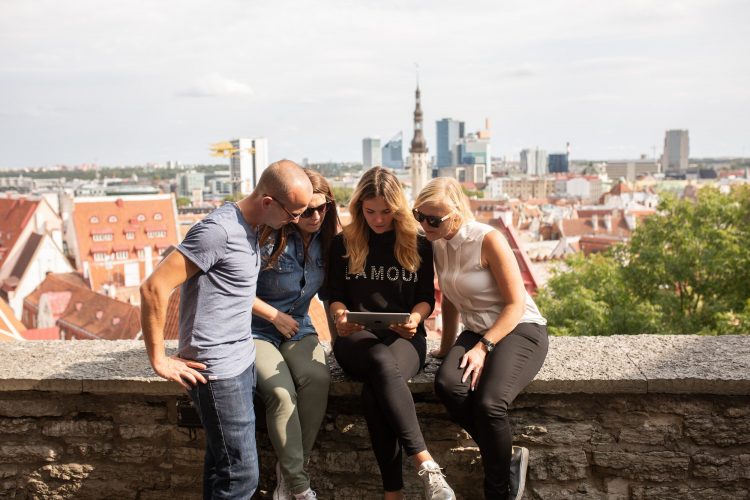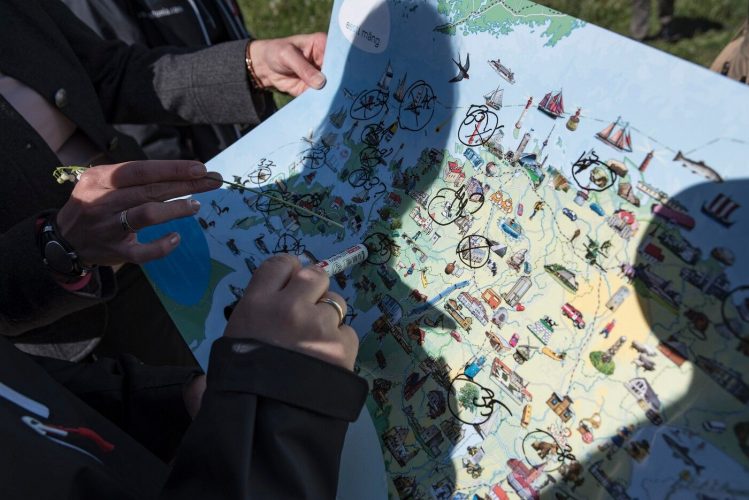The adventure company 360 Kraadi has been operating since 2003. The company grew out of organizing a variety of enjoyable hiking trips. Today, the company has developed on many fronts, but the main focus still remains on providing active teamwork in nature. We talked to the manager of the company, Alar Linn, about the need for team training, the Estonian market in this field and about the solutions they offer.
Which companies contact you and what kind of wishes do they have?
The ready-made product is generally requested by a private customer or by a company that has contacted us directly. Their wish, in general, is to get 1-2 products from our portfolio. Be it a team game for the company’s summer days or an active post-seminar or post-conference activity. However, the purpose of the activity is also largely dependent on the content of the event and the nature of the team.
Collaboration with event marketing agencies is very good. They are actively using ready-made products in our portfolio. At the same time, agencies often want to develop some custom-made solutions. According to either the client’s wishes or peculiarities, to propose an activity that is not yet found in the Estonian market. Agencies understandably want their offers to be distinctive and special.

How often do you develop custom-made solutions?
We are ready to do it when we ourselves believe in the solution. At the same time, our policy is that if the customer is not satisfied with the game at all, we will not invoice for the service. Therefore, games that have already been previously developed and have been tried out many times are often chosen.
As mentioned above, the wishes of having special solutions rather come from agencies. At the same time, the initial thoughts may seem cool, but the realization is utopian and we have skipped the plan. But, on the contrary, there have also been successes where an excellent solution has been found in co-operation with the agency. We have a number of games in our portfolio, the original idea of which has come from an agency and their client. And today we are offering these games to others. In such situations, we make a separate agreement with each agency on what basis and after which time period we can publicly add the service to our portfolio.
How do you find new games for your portfolio?
New games and ideas come in the course of work. Experience and cognition of what kind of solutions are needed. There isn’t always need for new activities. During our years of operation, there have been several occasions where we have re-introduced a game which we had already discarded because some customers want it. But of course, there is a need to go along with the advancement of time and technology and to improve the existing products if necessary. It also adds novelty and excitement to the games and to those who have played the game before.
I feel that we currently have too many different services on our active list. However, when we have already developed something, it is heartbreaking to remove it from the list. Therefore if the game is working and until there are orders for it, we will keep it on our list. ?
What are the goals of having teamwork games?
There are different goals. Often, you have to think about the content of the event and also to offer the game accordingly. Our activities are largely seasonal. Summer (May, June, and August) is the busiest time. For example, in August 2018, the team of 360 Kraadi managed to conduct 160 team games. This is a very heavy workload.
In general, we can divide the activities into two categories according to their goals: 1. either just a fun game or 2. the focus is to teach something to the participants (company values, problem-solving methods, etc.). In the case of company summer days, it is generally the first option. For post-seminar and post-conference activities an educating activity that is fun at the same time is rather selected.
At the same time, working together as a team is already team-building – a different environment and situation. It is important to remember that no team training and team game should be too serious. This way, people consider it too much work-related and may not want to join in the activities anymore.
How actively do Estonian companies currently contribute to the development of their staff?
The current state is pretty good. There are many smaller training sessions and seminar days organized and people are also being motivated through Christmas parties and company summer days that are organized for them. In economically more difficult times, this is the budget line where companies start cutting costs quickly. At the same time, we have noticed that they are trying to maintain and motivate their existing staff. Finding, training and motivating new employees is likely to be more costly.
So I respect the companies that value their people and invest in their development.
What kind of trends do you see in teamwork development in Estonian companies?
It is a pity to realize and see this, but often a lazier and the easiest solution is chosen. Over the years we have seen how office staff is not ready to go into nature. Business leaders do understand the need for motivation days and -activities but are willing to spend less time on this. The events and activities that do take place last shorter in time.
It is interesting to see that multinational companies and the people working in them are more willing to discover nature, struggle in the mud and go through the fun extremes. Often, the poor weather in Estonia is not a disturbing factor. Unfortunately, Estonians are comfortable and want to quickly attend an event that is close to their home and work and soon return to their own activities. The international company is cool!
For example, in the early years of 360 Kraadi a long hike was 7-8 hours in nature and a short hike 3-4 hours, but today we are not even offering the first option as a service anymore. And a 3-hour hiking trip is called a long outing.

Do you remember a particularly vivid and challenging situation? What did you learn?
Big events are always challenging. It is most vividly reminiscent where we had to make 800 people play a game at the same time during the company’s summer days. It was important to quickly deliver the starter kits to people and to send them off at the same time. We had previously done as much preparatory work as possible – put together the kits, prepared the games and so on.
We realized that just before the game, the organizing team itself must be quick, sharp and have a positive emotion in order to make the participants feel good to start their activities.
What would be your recommendations for the person who is planning an event? What to think about before contacting you or an agency?
- Early planning – the later you start, the fewer options for places and service providers there will be.
- Who are the people participating – the proportion of men and women and their willingness to participate in different activities?
- What is the structure of the event and what is the goal of the activities – fun versus educational?
- Location – 100% outdoor event, or partly indoor activities.
- Is it an Estonian-speaking or a multilingual group.